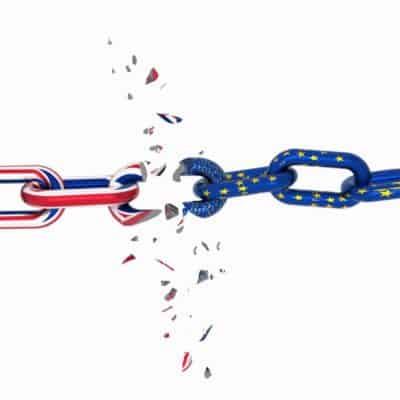It is hard to fully appreciate the shifts that have taken place in the geopolitical landscape as the world begins to cope with the reality of a second Trump presidency. From enemies to allies and tariffs to truces, we will attempt to chronicle the many changes taking place. We will also examine the political ramifications abroad, compounding already volatile situations in many countries’ capitals.
Gaza deserves to top this list. For those of us who WATCH with an eye to what Bible prophecy foretells no other region can rival its importance. The situation on the ground right now is vastly different from the status quo of years past. US support is not one of the issues Israel has to worry about. It is no coincidence the current ceasefire took effect the day before the inauguration.
What Hamas began on October 7th has led to the utter destruction of Gaza and the eradication of the majority of their leadership. A similar fate has befallen their allies in Hezbollah. Lebanon is being urged by the US to take the initiative in ensuring Hezbollah does not rebuild its military capabilities, particularly along Israel’s border. Israel has delayed withdrawing from certain locations in Lebanon until another force is in place to ensure this does not happen. A crucial part of this plan is preventing the resupply of armaments from Iran, to which end flights between Beirut and Tehran have been suspended.
The other main avenue for arms to reach the conflict with Israel has been overland through Syria. This option expired with the fall of Iran’s ally, Bashir al-Assad. His rapid ouster left the world stunned and ended decades of his family’s rule in a matter of weeks. Hezbollah was in no position to come to his rescue, Iran’s resources were occupied elsewhere, and Russia (whose intervention preserved Assad through the Arab Spring and years of civil war) was preoccupied with Ukraine. Syria remains in flux but stable, with its infrastructure intact.
The leader of the Islamist faction that led the revolt has moderated his rule in recent years, a move that may help woo western support for his involvement in any future government. Europe is particularly eager for any stable arrangement that could be deemed “safe” and allow for the return of many refugees. Even in the relatively quiet past few years, hundreds of thousands of Syrians have applied for asylum in the EU on account of the civil war.
Israel used the confusion surrounding Assad’s escape to Russia as an opportunity to decimate stockpiles of military hardware before they could fall into the hands of potential foes. Airstrikes pummeled installations around the country. Israeli troops have also secured their shared border with Syria in the Golan Heights, ensuring its safety regardless of what transpires politically.
A similar boldness can be seen in many of the actions they are taking, such as their operations inside many refugee camps in the West Bank. They are being cleared of potential enemies in much the same way that Gaza has been systematically ground into rubble. Israel now has the resolve and domestic support to strike at their foes wherever they may be hiding. The assurance of backing by their most important ally is not to be overlooked in these developments.
The Trump administration nearly made the Arab world TILT by suggesting they would take control of Gaza, move the Palestinians out, rebuild it, and see where we go from there. Ludicrous? Maybe. But out of the attendant consternation comes the reality that someone has to take responsibility for reconstruction, security concerns and future governance. Diplomatic meetings are being convened among Arab leaders to offer a legitimate alternative. Major players like Saudi Arabia, the UAE and Egypt are involved. President Trump has already met personally with King Abdullah II of Jordan.
We can hope that these negotiations will lead to a stable, palatable peace for all parties, though we know it will not last forever. Israel is resolved not to let Hamas continue to rule. Discouraging the sentiment that led to October 7th will prove even more difficult. Respected regional players have both the clout and the funds to bring about a reprieve. But consider the irony of the US and Israel encouraging a coalition of Muslim nations to be answerable for the security of Gaza and potentially the West Bank. It invites the very scenario pictured in Bible prophecy. While no “King of the South” is evident, any collective commitment to Gaza has the potential to bring an Arab coalition into conflict with Israel. This is something that has happened in the past and is prophesied for the future.
Saudi Arabia is a key player in this conflict as well as the one between Russia and Ukraine. Riyadh is hosting talks between the United States and Russia to end that war also. These negotiations are ongoing and may develop significantly before this article goes to print. Europe is irate at the idea they are being left out of the mix, yet they are divided as to what an appropriate settlement might consist of or even what their relationship with Russia should be going forward. The elephant in the room is that despite vast contributions of military equipment and funds, Ukraine has not been able to stem the advance of Russian forces.
While unpalatable, it is not likely that the West is going to get Russia to relinquish much of the territory they have captured short of military confrontation. This is equally unpalatable and, despite European fears that it is only a matter of time before said confrontation occurs, it is something they are both economically and militarily unprepared for at this time. Sentiment also varies widely, particularly among Euro-skeptic parties who favor less integration and a restoration of business ties with Russia.
The US and Ukraine are currently negotiating a mineral deal that looks to open up Ukraine’s natural resources in exchange for security guarantees. An agreement could lend a measure of stability to any post-war settlement. Drama ensued at a signing ceremony between Trump, Vance, and Zelensky. The deal is off for now, but we can be certain Trump intends to recoup the funds poured into Ukraine somehow. The UK and France have indicated a willingness to put troops on the ground to enforce any cessation in the war.
Many EU leaders visited Kyiv to show their support on the 3rd anniversary of the war. The most vociferous among them make no bones about preparing for open war with Russia. Trump’s statements about the EU not meeting their NATO commitments during his first term resulted in offense and outrage. Now, they almost try to outdo each other with declarations about Europe taking responsibility for its own security. Long-time readers of this publication know what renewed militarization portends for the region.
Nor is this the only trend that warrants our scrutiny. Germany’s recent election saw the demise of a left-leaning coalition. Friedrich Merz will likely be the incoming Chancellor. He is the heir to Angela Merkel as the current leader of the CDU. Though they took more votes than any other party, the CDU only garnered 28% of the total, making it necessary to reach a coalition agreement with at least one other party to form a stable government. The CSU, which came in third, is the most likely partner though the campaign highlighted some bitter contentions that will be hard to overcome. Their leader, Scholz, is the outgoing Chancellor.
The AfD saw their best results yet in a federal election, taking 20% of the vote, second only to the CDU. However, they will not have a role in government, cooperation having been precluded by all other parties as a so-called “firewall” against their nationalist tendencies. This election result is evidence that tactic is beginning to backfire. The AfD’s power continues to increase in opposition as weak, centrist coalitions fail to address many of the underlying problems in German society. An almost identical scenario is playing out in Austria and there are similar political repercussions happening in capitals all over Europe.
Germany is at a precipice. Their economy has been battered by the sanctions against cheap Russian gas, formerly the lifeblood of thriving industry. Many of their most lucrative sectors face increased competition from China at the same time they are being asked to secure their supply chains against dependency on a potential adversary. Their economy also relies on exports and the threat of tariffs or trade disputes with the US is not taken lightly in Berlin. Investment is necessary to reinvigorate their economy, yet they are up against a constitutionally imposed debt limit and there is serious opposition to raising or removing it. This is also a hindrance to increased defense spending. All this at a time when Germany is being looked to for leadership in Europe. Volatile would be an understatement.
The new US administration is making it abundantly clear that Europe needs to step up and be responsible for their own defense. Our own financial house is in terrible shape. Many of these policy changes, both domestic and foreign, are necessary but that does not stop them from being frightening or downright prophetic. Europe will coalesce into a military juggernaut at some point, and we would be loath to desire it. Much of the current shake up is based on the US needing to shift its resources to confront China. This is no small thing.
The Trump administration is unabashedly unveiling “America First” policies and proposals to allies and enemies alike. Much of the rhetoric is extreme, the threats formidable. But when the shock subsides you can see how effectively it drives the intended target to the negotiating table. Can deals be reached that will truly be beneficial for all parties? We shall see. No doubt some will succeed and others fail. Will the world bow before a resurgent United States or will unexpected developments render a comeback impossible? So much of the order established during the 20th century is in flux, it would almost be more shocking if there were no surprises. Whether the next few years are elating or alarming, we trust in God for guidance and protection and pray all of our leaders do the same. His will be done.










